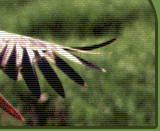Results of the project The Project reached its goals set on transfer experience in cross-sectoral cooperation in farming for biodiversity between Nordic - Baltic - Belarus. Best experience and best practice exchanged on multifunctional grassland-based farming producing hay, meat and other products and simultaneously producing public goods by maintaining semi-natural landscapes and biodiversity. The aims of long-term effect and wide application of the Project results were fulfilled by publishing book containing the best Nordic-Baltic-Belarus experience on jointing farming and nature conservation identified during the project. Network meeting, two study visits, final seminar, and network for further cooperation also contribute to the long-term effect and wide application of the Project results. To build a long-term regional partnership the well-attended networking meeting in Latvia has been organized. During this meeting NGOs network was strengthened and widened and it is used as the basis for transferring knowledge and experience between countries in regard of traditional and innovative farming methods supporting biodiversity. Project network meeting took place on November 18-20, 2009. It was held in Apđuciems, Latvia. During the seminar participants from Latvia, Norway, Finland, Belarus, Estonia, Sweden, Austria and Germany shared their experience in farming for biodiversity. Participants from Austria and Germany were those representing TRINET network. Involving representatives from the TRINET made our workshop as a joint seminar where not only practical examples of farming for biodiversity were discussed, but also much attention was devoted to international experience, further networking between the Baltic and Nordic countries and Belarus, and with the TRINET network. Project partners agreed to remain in contact as a network and to continue to exchange experience and transfer knowledge in traditional and innovative methods in farming for biodiversity between countries at the Nordic-Baltic-Belarus level. Network NGOs also agree to work with existing TRINET network and to nominate it (or its member organizations) as a clearing house. The aims of project seminar were fulfilled as exchange of best experience in farming for biodiversity in Baltic and Nordic countries and Belarus were widely discussed in well attended networking seminar. During the project two study visits for the partners have been organised to demonstrate best practices in maintenance of biodiversity in rural areas. Study visit to Belarus took place during June 28th - July 1st, 2010. Study visit to Sweden took place on August 17th -19th, 2010. Special focus has been paid to invite more participants from Belarus in study visit to Sweden. Evaluation of study visits to Belarus and Sweden was done by asking all participants to fill in a questionnaire. The feedback data on the questionnaires returned were collated and analysed. Feedback was evaluated on a question-by-question basis. Evaluations also include remarks and comments and summarized conclusions from evaluation of survey findings. Overall, the study visits were a great success as the comments and feedback obtained from the evaluation survey showed a positive impact on the participants’ understanding on farming methods, evaluation of biodiversity and best practices in maintenance of biodiversity in rural areas. The aims of study tours were completely fulfilled as best practices in maintenance of biodiversity in rural areas have been studied during these study tours. Best practice farms from Sweden and Belarus were visited to study practical management for sustainable eco-farming and maintaining the ecosystem services provided by biodiversity rich grasslands. During the project farming for biodiversity best practice case studies book “Nordic-Baltic-Belarus solutions in farming for biodiversity” has been prepared in English and Russian. It is targeted at both farmers and nature conservationists in Nordic, Baltic, and Belarus countries. Book includes articles from all countries represented in the Project. Each article contains abstract in English and summary in Nordic, Latvian or Russian language (according to the authors’ country of origin). The book has 164 pages, contains 14 articles, and Introduction chapter. It is printed on environmentally friendly (FSC certified) paper and has colour photographs. Each chapter contains a separate article on specific issue, so this book is as collection of best experience cases and best practice guidebook containing NGO experience identified during the project. To disseminate the project ideas and acquired best practices, the Project final seminar was organized for Latvian experts and authorities. Project final seminar took place on April 27-29, 2011. It was held in Ziemupe, Latvia. Representatives from farming sectors, experts in biodiversity conservation and authorities participated in the seminar. During this meeting overall project findings in networking aspects, best experiences collected in the project book, and lessons learnt during both project study visits were discussed. |








